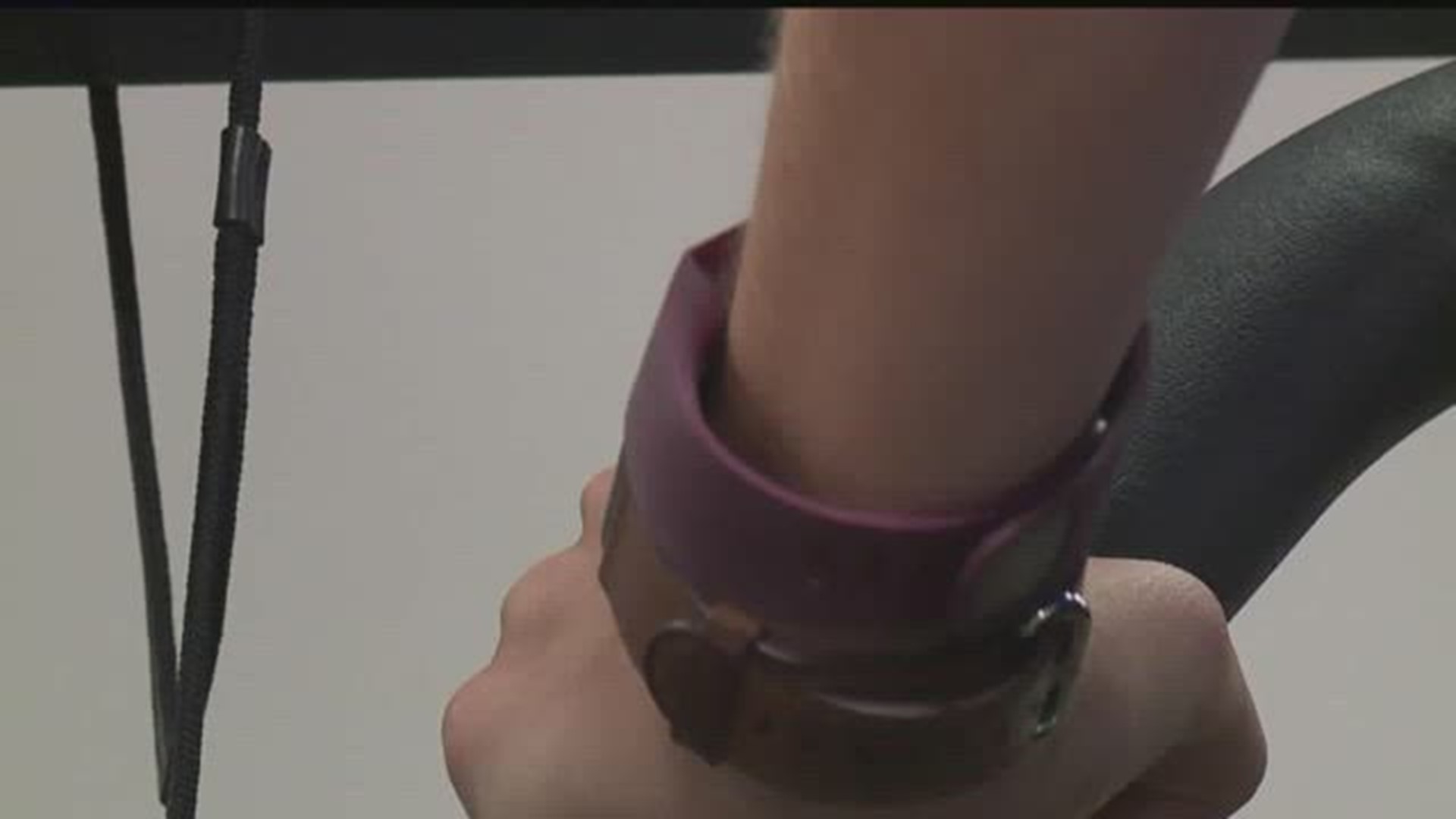YORK, Pa. --It's very common in today's society to hear people talking about getting steps in, referring to the steps they walk daily and monitor using a personal fitness tracking device. But the question is, how accurate are they?
Many fitness devices record a variety of information, including; steps, calories and heart rate providing instant feedback.
"For the first time, you have a customer or a person who has statistics on themselves," Spooky Nook Director of Athletic Operations, Tim Launer explained.
But how exact are those numbers?
"As far as accuracy and numbers, they are probably not very accurate," Launer said.
A recent University of Wisconsin study published earlier this year, says wrist-worn fitness trackers are most effective measuring heart rate when a person wearing the device is at rest, but with increased activity some were off by 20-40 beats per minute compared with medical tracking methods.
Fox43 decided to put it to the test making a visit to the Lancaster General Health with Exercise Physiologist Ryan Huxta. We ran on the treadmill for 6 minutes, wearing both an Apple Watch and a Fitbit. According to Huxta, the most accurate read on your heart rate is to do it manually by checking your pulse during exercise.
During the run, the manual pulse check was 156 beats per minute. When compared to the wrist-trackers, the Fitbit registered an average heart rate of 139 beats per minute and the Apple Watch, an average of 158 beats per minute.
The Fitbit tallied 847 steps and 63 calories burned while the Apple Watch clocked 743 steps and 53 calories burned; a difference in almost 100 steps. Fitness experts say the difference in the numbers could be due to a number of factors and needs more research.
"Through all this data they've collected, they've basically tried to figure out with this type of motion equals a step so as soon as you break up that movement pattern or as soon as that movement pattern changes, it may record a step different or may not record a step at all," Launer said.
"As far as the watches, I think that's just yet to be seen as we continue to do more studies and research," Huxta explained.
Health and fitness experts argue the important thing is to be consistent with your device.
"The most accurate way is to stick with whatever device or tool that you're going to use and use that as your standard," Huxta said.
Fox43 reached out to both Fitbit and Apple. In a statement, Fitbit wrote "Fitbit trackers are designed to provide meaningful data to our users to help them reach their health and fitness goals, and are not intended to be scientific or medical devices."
For increased accuracy, Fitbit recommends users personalize their device with information such as gender and height. In addition, the company advises users to wear the device securely, high up on your wrist.
Dr. James Ku, Medical Director of Healthy Weight Management, believes there are still many unanswered questions about trackers but says they can encourage people to be active.
"The benefit of using a fitness tracker, it may be to monitor actual steps that are taken or it may be also just be a very strong motivator just that you're able to look at that information," Dr. Ku said.
To learn more about how fitness trackers can be used in the medical field, Dr. Ku and a team of researchers are currently studying how medical professionals can use the data collected from fitness trackers to help treat patients, for instance, looking at how it affects certain outcomes such as weight loss or existing medical issues.

